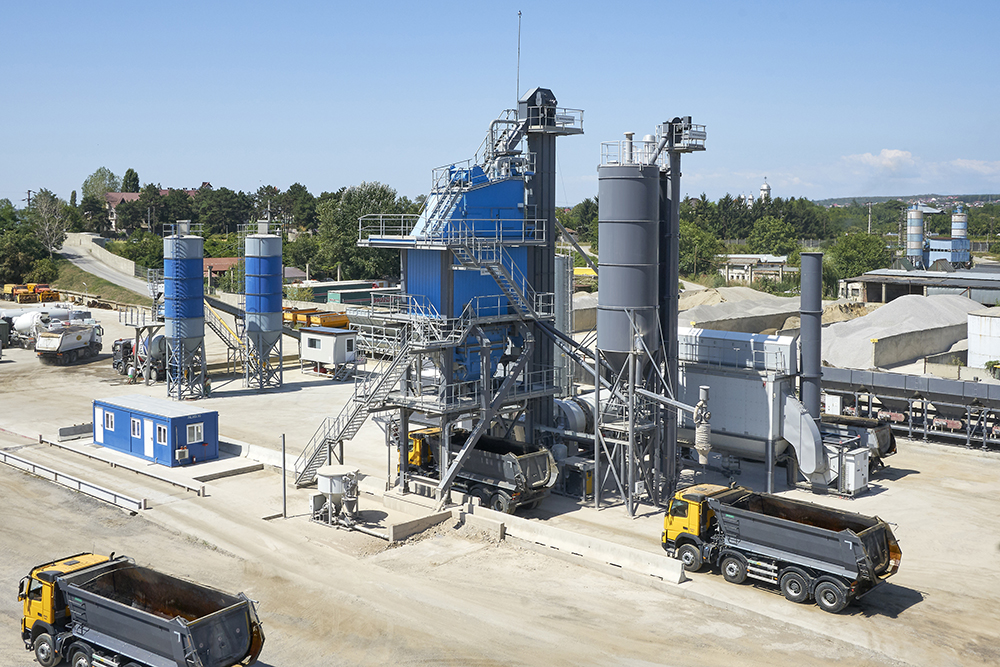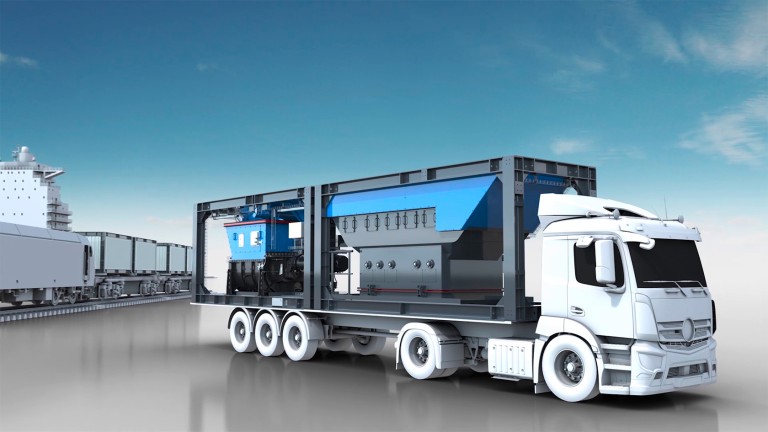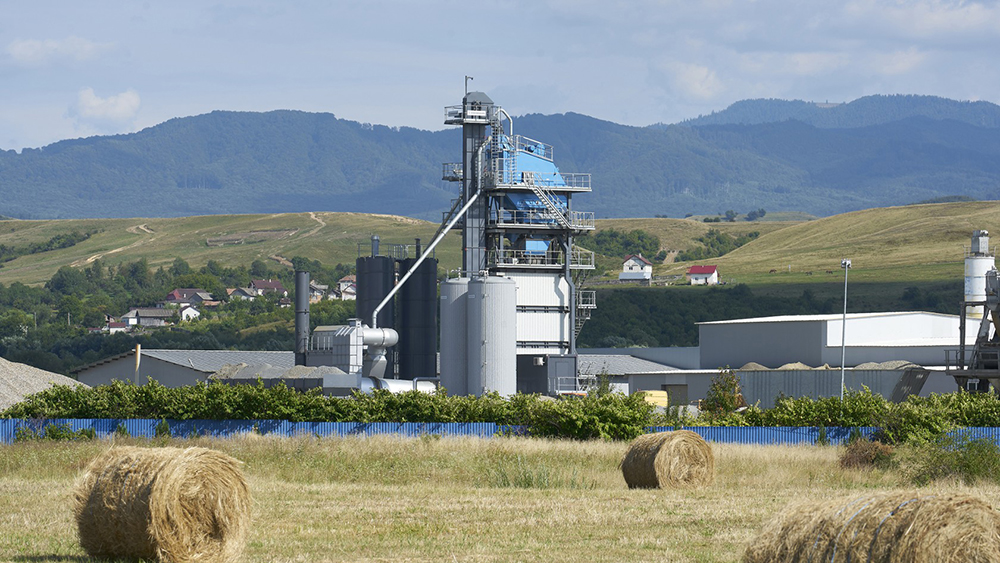
The ECO and TBA mixing plants are operating at different locations in the country.
Germany-based Benninghoven says that Romania's long-distance roads are in need of rehabilitation, even though at just 750 kilometres, the network is comparatively small.
The country has set itself the goal of catching up Europe, and also of launching an infrastructure programme. Overall, the aim is to extend Romania's motorways to a total length of 2,710km. An impressive 223km are currently under construction.
A number of special considerations apply when planning and erecting asphalt mixing plants operated in a country with a high level of seismic activity. In areas like these, standard designs of plant cannot be supplied; it is far more the case that specific designs of plant and safety precautions are necessary for these structures which range from 20m to almost 50m tall.

This is not new territory for Benninghoven. All three plant types – ECO, TBA and BA – are split into various load classes from the outset. The company’s internal static calculations then show which load class (earthquake, wind, terrain category) has to be met. The higher this is, the more solid reinforcements and foundations, for example, need to be.
In the west of Romania, SDM Timisoara replaced an existing asphalt mixing plant. SDM requires asphalt primarily for rehabilitation projects in and around Timisoara. The decision in terms of plant technology was eventually made in favour of an ECO 2000 transportable asphalt mixing plant in a container design. “There are lots of different options which enable Benninghoven to satisfy perfectly customer requirements and above all the objectives of the plant,” said Valentin Martanov, general manager at SDM.
In addition to plant technology, these options also cover the plant’s appearance. A specific colour can be required for different reasons, whether local authority specifications to integrate the plant more harmoniously in the environment or a customer’s requirement to implement specific corporate colours. The ECO 2000 in Timisoara is orange. These are the kinds of customer requirement which Benninghoven can satisfy because in its new factory, Benninghoven's parent company the Wirtgen Group has commissioned a new powder-coating facility.
The powder-coating facility also enables Benninghoven to create surfaces with maximum resistance to chemical and mechanical attack. The corrosion protection is especially durable, the surface also resistant to scratches and impact, weathering and abrasion. Furthermore, the surface is UV-resistant – all without any clear varnish finish. Now no need for concessions on colour, either.
Another ECO 2000 transportable asphalt mixing plant in a container design was also recently commissioned in the north of Romania to replace an old plant.
Its special feature is that it is located in the middle of a nature reserve in one of the most beautiful regions of the country. Local authority conditions were correspondingly stringent.
“With Benninghoven as a partner, we were able to satisfy all the conditions,” reports Alexandru Simionca, general manager at Indemanarea. Benninghoven says this is because the EVO JET burners, tried and tested for decades and continuously further developed, feature a high level of efficiency in operation. The latest frequency control technology means that emissions are minimal.
A third Benninghoven mixing plant, TBA 2000, has recently started producing high quality asphalt in Blejoi, about 50km north of the capital Bucharest.

Benninghoven's transportable plants (or TBA for short) cover a capacity range from 160 to 320 t/h and are suited to both semi-mobile and stationary applications.
“Our TBA 2000 is very well equipped,” says Andrei Burlacu, general manager at construction company Strabenbau, which has deployed the plant. This is important, because the ready asphalt mix is not stored, but is mixed and loaded directly to order. Strabenbau's machine fleet also includes VÖGELE road pavers and HAMM rollers.
The young management team sees potential for growth in asphalt production in particular: a further TBA is already being planned.
Benninghoven highlights two features of its mixing plants that are particularly valuable for completing direct loading as quickly as possible: the generous hot bin which can hold 80 tonnes of white mineral and the BLS 3000 control system. The latter controls the TBA via an article-based formula and order system.
This means that as many formulas as the customer wishes can be entered and managed. When orders come in, the suitable formula then usually just needs calling up. The mixing supervisor of the TBA 2000 in Blejoi can react flexibly to delays in the day’s operations by splitting orders into part-orders or interrupting orders to give priority to others. The residual quantity is then stored automatically and taken into account when the order in question is resumed.
In addition to new asphalt mixing plants, Benninghoven also supplies retrofit solutions for existing plants. Adding power to existing asphalt mixing plants by retrofitting them with EVO JET burners, for example, is worthwhile in both economical and ecological terms.
Benninghoven accordingly offers the option of being able to burn four different types of fuel. Depending on the burner model, and on which fuel currently has the lower price or better logistical availability in the market, anything from oil to natural and liquid gas all the way to solids like coal dust can be used as fuel. Benninghoven claims that its EVO JET burners can significantly minimise the high costs resulting from price fluctuations, delivery bottlenecks and downtimes.








